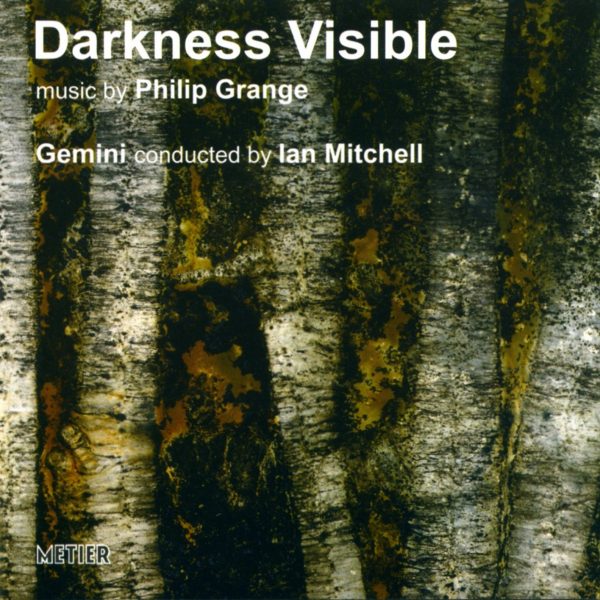Tempo
On coming into acquaintance with much of Philip Grange’s music, one is first of all struck by the sheer quality of it all, then puzzled that music so good isn’t better known. It may be that the reason for this is that Grange’s entire career, both as a student, and afterward, has taken place away from London: first as a student at York University, from which he received an undergraduate degree and a doctorate; then, as a fellow in the creative arts at Trinity College, Cambridge. Since when Grange has had a distinguished teaching career at the Universities of Durham, Exeter and Manchester, all the time producing quite a bit of music, all of it uniformly excellent.
Convicted of guilt by association, Grange’s music is often said to be like that of his mentor Sir Peter Maxwell Davies, with whom he studied several summers at the Dartington Hall Summer School; but, in fact, his music is closer in its harmonic and rhythmic workings to that of Elliot Carter, with which Grange has been preoccupied since his student days. However, just as he is not a Carl Philip Emmanuel Davies, he is also not some sort of Carl Philip Emmanuel Carter. Even though their musics have certain similar rhythmic procedures, those same procedures which in Carter’s music are used to make fluid and seamless transitions between constantly changing tempi, are deployed in Grange’s to maintain a sense of the simultaneous existence of contrasting and interpenetrating planes of tempo. Grange shares with both of those composers, though, a seriousness of intent and a sense of being one in a succession of devoted and serious practitioners of an art in whose meaningfulness and expressive power they have complete faith.
In his seven years in Davies’s composition class at the Dartington Summer School of Music, which involved writing pieces for reading by The Fires of London, Grange became very familiar with the ensemble and its instrumentation. His first major piece, Cimmerian Nocturne, came out of his association with the group, which commissioned it and gave it its first performance. This was his first piece to take a literary work, in this case Conrad’s Heart of Darkness, as his starting point; not only does it share with the book its brooding atmosphere and its quality of veiled and increasingly less restrained violence, it also mimics the book’s journey towards a deeply intense central point and back out again. Variations, also written for The Fires six years later, derives its formal design of three cross-cut and cross-referencing variation cycles from William Golding’s novel Darkness Visible.
A few years after the dissolution of The Fires of London, Grange began an association with the group Gemini, which often times had the same instrumentation as the Fires, and which became the resident ensemble of the Music Department of the University of Exeter, where Grange taught. The Lament of the Bow, written in 2000 to satisfy a commission from the Contemporary Chamber Orchestra of Taiwan, who gave its first performance, takes its literary starting point from the biblical lament written by King David on the death of his friend Jonathan, and moves on to a consideration of grief an grieving as described by Freud in his essay ‘Mourning and Melancholia’. Gemini gave the first UK performances of The Lament of the Bow, and added it to their repertory. Their recording of these three pieces on this Metier disc, conducted by Ian Mitchell, are powerful and magisterial, and vividly realize the darkly urgent and intense expression of each work.
@divineartrecordingsgroup
A First Inversion Company
Registered Office:
176-178 Pontefract Road, Cudworth, Barnsley S72 8BE
+44 1226 596703
Fort Worth, TX 76110
+1.682.233.4978












